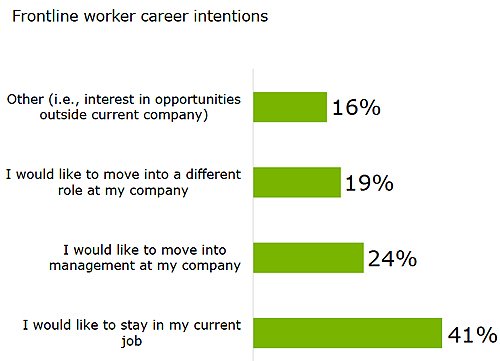MOTOR Exclusive: dott.™ Aftermarket DEI Roundtable
IN SEEKING ANSWERS FOR A TALENT-STARVED AUTO INDUSTRY, THERE’S A SOLUTION HIDING IN PLAIN SIGHT
Many automotive companies and organizations are not tapping into an important pool of the workforce—women, minority and LGBTQ+ communities—and that has to change
By Rob Merwin
In today’s world, finding and keeping a talented pool of employees can be challenging, whether for a company or organization. It’s tough out there. Also in today’s world, it can be challenging for women, minority and LGBTQ+ communities to find employers that recognize and value their talent, which can often be stifled by institutional stagnation at leadership levels. For many of those communities, they will also say it’s tough out there. So, what’s going on here?
As two studies conducted by Deloitte reveal, at least some of the answers lie within out-of-touch corporate cultures when it comes to Diversity, Inclusion and Equity (DEI) initiatives. Could they possibly just be unaware, or worse, tone-deaf, to DEI programs and practices? Recent data from the studies suggests unflattering conclusions. But there is also progress being made.
Deloitte’s “2020 Women at the Wheel Study” found that nearly half of the women surveyed said they would move to an industry other than automotive if they were to start their careers today, with a lack of DEI among the top three reasons to leave.
Other key takeaways include:
There is a discrepancy between genders on whether attitudes toward women have improved in the last five years, with a decreasing number of women (39% in 2020 down from 64% in 2015) perceiving positive change compared to men (64% in 2020).
Far more women (70%) than men (40%) believe minorities are underrepresented among their companies’ senior executives.
When it comes to factors that most contribute to a lack of diversity in leadership positions, more women (82%) than men (28%) believe there is a perceived industry bias toward men.
Even though fewer women than men give their companies a better-than-average grade for promoting and creating a diverse workforce, both genders see significant room for improvement.
In order to make improvements, Brian Wheeler, who is an automotive supplier consulting executive for Deloitte Services LP, said during a recent DEI-focused roundtable, that changes must begin at the top leadership positions in businesses and organizations. “It must come from the leadership level and then all the way down to the shop or distribution center floor.”
But, as noted, there are discrepancies between men and women in the study. Only 26% of men think the commitment to DEI is necessary for leadership success, compared to 46% of women. Also, more women than men believe there are benefits associated with a diverse leadership team, and a quarter of men see no benefit at all.
Wheeler also highlighted that 81% of women ranked company culture as the most important aspect of their career, second only to attractive income and pay.
While those statistics are perhaps surprising, they may not be shocking. However, there is a path forward for both genders to recognize room for improvement in their companies’ DEI efforts. So, what’s to be done?
Well, first, Deloitte’s report states that it must be acknowledged that fewer women are seeing positive change in the auto industry’s attitude toward them over time and knowing that company culture is important to women—start at the top by setting the tone that inclusivity is valued in leadership positions.
It must also be recognized, Wheeler said, that many women believe the benefits of DEI are critical to financial performance and decision-making, and that a clear path to advancement should be made available toward senior management positions as men already have.
Of all the industry sectors that lead in attracting and retaining a diverse workforce, high-tech and healthcare are out in front. The auto industry, he noted, can learn from those industries, as 50% of women in the study would select them to begin their careers if they were to start today.
“We need to be talking about these things, and if it doesn’t begin with leadership, then they’ll likely not funnel down to the rest of an organization.”
Encouragingly, roundtable host Tammy Tecklenburg, who is founder of dott., a business consulting and services practice driven to elevate people, process and profits through “diversity of thought,” said she has noticed a distinct improvement within the past two years in top-down commitment in engaging in multi-year strategies to drive systemic culture changes. “We’re seeing leaders starting to wrap their heads around DEI, whether they are forced to by their private equity owners or through grassroots efforts happening in their organizations.”
Wheeler pointed out, though, that if DEI messaging isn’t received and absorbed within a company then it “doesn’t matter how many emails you send, or how many posters you put in the break room or on the bulletin board—if the message doesn’t get to the person it’s supposed to get to, then it doesn’t succeed.”
In 2022, Deloitte released its “DE&I Among Frontline Workers Study.” For the analysis, “frontline workers” were defined as those employees who are market-facing, such as, for example, those selling vehicles at a dealership. “But what I really consider when I say frontline workers are those folks who are at a distribution center, in manufacturing or on the shop floor who are helping make these [DEI initiatives] come to life and get it done,” he said.
According to the report, “Frontline workers in the auto sector are generally satisfied with their job and company management. However, only 4 in 10 employees feel they can always be their authentic selves at work and less than half feel their company’s DEI initiatives are truly focused on creating a better workplace, signaling an opportunity for improvement in areas such as creating effective sponsorship programs.”
Drilling down further, while 40% (the 4 in 10) in the study report they can feel they can be their authentic selves, only 34% of workers feel a sense of belonging at their company, while just 30% said they feel their company is very accepting of family or personal commitments.
“Everything has changed dramatically since Covid [and working remotely] and how we now manage our personal lives and families,” Wheeler said.
Photo courtesy Deloitte.
So how do frontline workers rate their company’s authenticity when it comes to DEI? Five percent reported that their company’s DEI initiatives are more about looking good (i.e., less about creating a better workplace).
“They’re more about ‘checking the box,’” he explained. “I hate to say it—and I see it a lot—especially in entities that perhaps aren’t family-owned, and maybe not publicly traded, where they feel the need to check the box to show their investment community that they’re serious about DEI.”
On the brighter side, 42% of frontline workers report that their company’s DEI initiatives are truly focused on creating a better workplace for all. “It was something that caught my attention,” Wheeler said. “I thought it was quite a large number for the automotive industry. Even better, that number is even favorable compared to other consumer sectors.”
Those sectors include retail (38%), consumer packaged goods (37%) and travel and hospitality services (36%). “I was pleased with the results for automotive. Is there room for improvement? Of course. But it shows me that we’re turning in the right direction.”
Wheeler clarified that the studies were not aftermarket-focused, but rather an analysis across the entire automotive industry: manufacturing and parts suppliers at both OEM and dealer levels. In a follow-up email to MOTOR, Tecklenburg agreed that Deloitte’s DEI studies are heavily weighted on the OEM-Tier 1, which is 10-15 years ahead of the aftermarket on DEI programs and practices.
“If they polled the aftermarket only, the result would be much worse.”
Wheeler concurred, “When I started getting into the aftermarket [data], that’s where DEI starts to fade—and it fades very fast. I don’t see this as a priority for the aftermarket. I had someone once ask me, ‘How does this move the sales needle—I don’t care, it’s not my priority,’ they said. Look, I get it. We’re all trying to make money at the end of the day and that’s why we’re in business. But—and it’s a big ‘but’—there’s a big need for talent, so why not consider DEI as part of your initiative? There’s a lot of very capable and smart people out there, who maybe don’t fit a ‘mold’ that exists today, specifically in the aftermarket—the industry is ripe for change.”
Photo courtesy Deloitte.
One such company whose culture and strategy of DEI successfully trickles down is Standard Motor Parts (SMP) in a program led by SMP’s Mike Stevens, director of Culture & People Development. SMP is also launching a new mentorship program to facilitate a broader initiative for the company to succeed with diverse teams.
“The culture at SMP has been rooted in DEI principles since the company began over 100 years ago,” Stevens said. “We have the longest tenured frontline workers throughout our facilities in the U.S.—these frontline people don’t stay at SMP for 10, 30 or 40 years if they’re not happy about the culture and environment they’re working in. From the Sills family (SMP ownership) on down, that culture has been embedded, welcomed, and has allowed the employees to really thrive. If companies have that culture in place, it will resonate with frontline employees.”
In a video during the roundtable discussion, Leeno Karumanchery, PhD, Diversity, Equity and Inclusion (DEI), of University of Toronto, said, “People-centric leaders drive inclusive teams, which is where all people thrive—we are desperate for things to be different. We believe that all people deserve to go to work and feel safe, a sense of belonging and to feel included so they can thrive.”
Tecklenburg added that the culture of DEI must be evangelized with measurable actions that can be tracked within businesses and organizations, and headway is being made but much more is to be done. “It’s been a long time coming.”
MOTOR employees are the driving force behind our success. We know that we grow and learn better together with a diverse team of employees and value an environment of togetherness in which all contributions are welcome. We are committed to cultivating and preserving a culture of inclusion and connectedness through collaboration.
Stay current on trending automotive news and read MOTOR-exclusive articles written by our industry-expert writers. Sign up to receive MOTOR’s e-Newsletter today!



